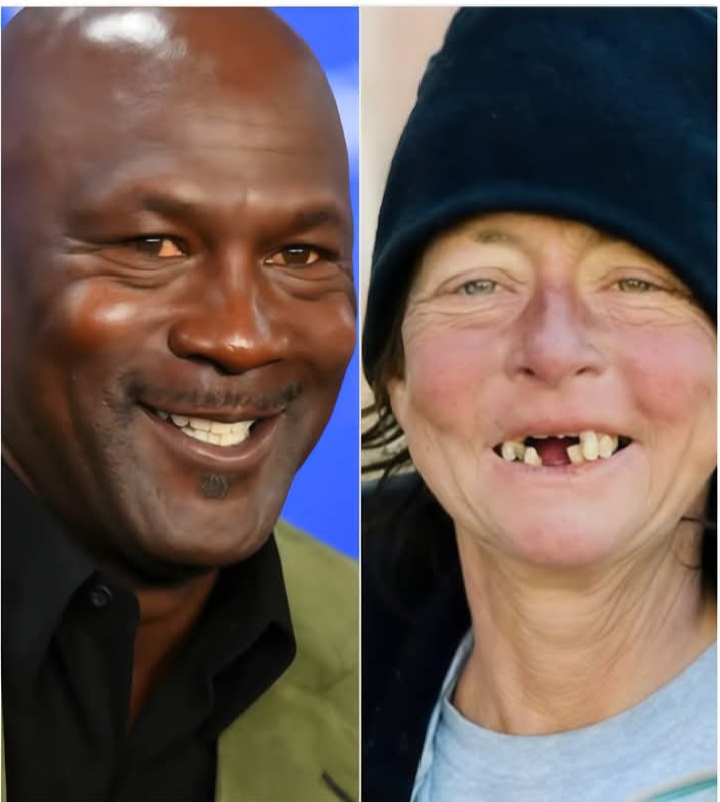In a scene that has since taken the internet by storm, NBA legend Michael Jordan proved that true greatness extends far beyond the basketball court. Witnesses at a bustling Chicago bus terminal were left speechless when Jordan stopped mid-stride to help a homeless woman who had asked him for just one dollar — and what followed was nothing short of extraordinary.
The woman, identified as Taylor Winslow, stood trembling amid the chaos of commuters, clutching a small paper cup. Once a registered nurse with over a decade of ICU experience, Winslow had lost everything during the pandemic — her job, her home, and eventually, her hope. “Sir, please… just a dollar,” she pleaded softly.
Instead of walking past, Jordan paused. The world around them seemed to fade as he looked her in the eye and asked, “What’s your name?” That simple question — spoken with respect — brought Taylor to tears.
As the conversation unfolded, bystanders began recording, captivated by the compassion of the basketball icon. Winslow revealed she had been homeless for eight months after burnout and trauma from losing patients during the pandemic left her unable to continue nursing.
Jordan listened in silence before asking a question that changed everything: “Do you still have your nursing license?”
When she nodded, Jordan smiled and said, “Then let’s get you back where you belong.”
Reports indicate that Jordan immediately contacted representatives from his Jordan Brand Foundation, arranging for Winslow to receive housing assistance, counseling, and a pathway to reinstating her nursing career. Within days, Taylor was placed in temporary accommodation and connected with a Chicago hospital offering retraining support.
Social media has since exploded with admiration, calling Jordan’s act “humanity at its finest.” Thousands have shared the story, using hashtags like #JordanKindness and #TaylorWinslowStory — a testament to how empathy can ripple into something far greater than fame.
In a world often driven by headlines and highlights, Michael Jordan reminded everyone of a simple truth: heroes don’t just make baskets — they build people back up.
